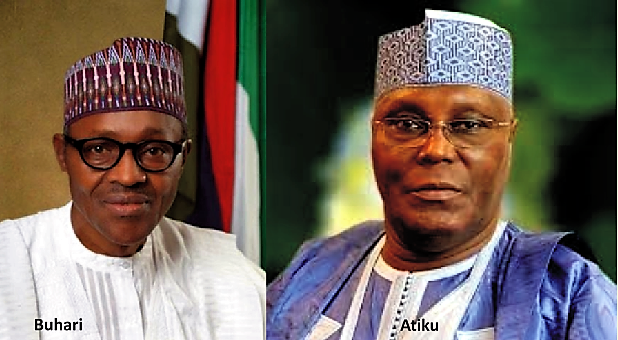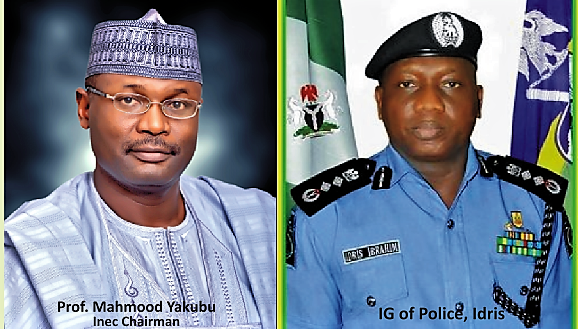Nigeria will be the world’s focus, come February 2019 as estimated 80 million registered voters file out to elect their President, 109 Senators, 360 Representatives, 34 State Governors, 191 State Legislators and 68 Area Councilors of the Federal Capital Territory, FCT. This will be the 6th general election in Nigeria since the return to democracy in 1999.
Already, the polity is agog with the phenomenal increase in number of political parties and voting population which according to the electoral umpire, the Independent National Electoral Commission INEC stands at 89 and more than 80 million eligible voters. The Commission stated that the election will be conducted in 119,973 units across 8,809 registration Areas (wards) of the 774 Local Governments of Nigeria.
However, it is not the high number of registered voters that matters but the actual number that will turn out during the voting exercise because of the prevailing low voters’ education in the country. In the last general election of 2015 for example only 28 million out of 67 million of voting population turned out to vote.
When on the 18th of October 2018, all Primaries of various elective parties were concluded and the political parties expected forward the names of candidates to INEC, not all the political parties that indicated interest to contest the 2019 general election met the deadline.
For the first time in history 70 political parties have submitted names of their candidates to INEC for the Presidential electin. They include
Muhammadu Buhari the incumbent President for All Progressives Congress APC (the ruling party).
Atiku Abubakar, former Vice President of Nigeria (1999-2007) – Peoples Democratic Party, PDP.
Donald Duke, Social Democratic Party (SDP) a former Governor, Cross River State.
Olusegun Mimiko for Zenith Labour Party (ZLB) a former Governor, Ondo State.
Prof. Kingsley Moghalu – Young Progressive Party (YPP), a former Deputy Governor, Central Bank of Nigeria.
Dr. Oby Ezekwesili – Allied Congress Party of Nigeria (ACPN) a former Education Minister, and former Vice President of the World Bank, African Region.
Omoyele Sowore – African Action Congress (AAC) , Publisher of Sahara Reporters.
Peter Awangwu, , We the People of Nigeria Party.
Mr. Edozie Madu – the Independent Democratic Party (IDP)
Habib Mohammed, for Young Democratic Party (YDP)
Dr. Davidson Isibor Akhinien, Grassroots Development Party of Nigeria (GDNP).
Mrs Eunice Atuejide, National Interest Party (NIP).
General John Gbor (rtd) – All Progressives Grand Alliance (APGA).
Fela Durotoye – the Aliance for New Nigeria (ANN).
Dr. Gbenga Olawepo – Hashim – Alliance for People’s Trust(APT)
Emmanual Etim, 38 is the youngest, Change Nigeria Party (CNP) and Parties & Presidential Candidates.
Barr. Chuks Nwachukwu – The All Grassroots Alliance (AGA).
The last Party has 17 Governorship Candidates; 124 Candidates for Houses of Assembly (States) and 66 Candidates for National Assembly.
The roll call of Presidential Candidates notwithstanding, political analysts believe that the Presidential poll will be between the two major political parties, the ruling party APC and the opposition party PDP.
What makes the presidential election more interesting is the emergence of Coalition of United Political Parties (CUPP) that comprises more that 40 registered parties, PDP inclusive with the determination to wrestle power from the ruling APC. Sources close to CUPP say that though some of them have presidential candidates, they are willing to arrive at a consensus candidate in order to be a formidable force to challenge APC. And that consensus candidate is no other than Atiku Abubakar.
Already, the polity is being overheated by fake news, hate speeches in the social media, creating fears of not having free, fair and credible elections in 2019. There is also a big question mark on the neutrality of the electoral umpire if what transpired in the governorship elections in Ekiti and Osun States in July and September respectively are anything to go by.
It is instructive that INEC itself has alerted the nation on what it perceives as threats to the 2019 general elections. The Commission’s Chairman Prof. Mahmood Yakubu while addressing the 14th All Nigeria Editors Conference in Asaba, Delta State recently, warned that vote-buying, incendiary speeches by contestants and atmosphere of mistrust, resulting in security challenges combine to threaten the credibility of the forth coming elections.
As the country marches to the 2019 elections, political analysts have described the emergence of two formidable candidates, Muhammadu Buhari and Atiku Abubakar for the presidential election as a battle of political titans. Atiku Abubakar ran against Buhari in the APC primary election in 2015 and came out third. In the 2007 Presidential election, won by late Yar’Adua of the PDP, Atiku ran on the ticket of the defunct Action Congress (AC) while Buhari flew the flag of the All Nigeria Peoples Party (ANPP).
The two potential presidential candidates are Muslim faithfuls and hail from Northeast and Northwest geopolitical zones respectively with virtually equal political structures nation-wide.
But unlike in the 2015 presidential election, the State of the nation now is begging for a messiah. The challenges are multifarious: Restructuring the country; Poverty reduction; Rising unemployment; unabated killings; Education decay and a fledgling economy. In as much as Buhari administration has made remarkable progress in the Anti corruption war and curbing the excesses of Boko Haram insurgents in the Northeast part of Nigeria and power generation, the specter of insecurity still hangs on the nation with no end in sight. Restructuring Nigeria to the Ideals of the founding fathers will no doubt be a major election issue that will mar or make the electoral fortunes of the two candidates, sentiments apart.
Both Buhari and Atiku took different positions on this all important issue at their party’s political convention in Abuja and Port Harcourt respectively on October 6, 2018. In the acceptance speech titled”change has come” Buhari stated:
“I accept the honour as attribute and mark of confidence to carry the responsibility as well as join hands to continue the good work of the APC government to 2023 and beyond. We are very proud of our record from 2015 to date. We have rested and checked the slide to anarchy on the security and economic fronts. Boko Haram is reduced to dastardly attacks on soft targets. Normalcy has returned to most of the Northeast and neighbouring Northwest States. Our currency has stabilized. Power generation capacity has reached 8000 megawatts against less than 4600 when we came into office.
On his part, Atiku Abubakar in his speech before victory at the PDP convention titled “it is time to get Nigeria working again”, stated:
“This election is one of the most important in the history of our Republic. Four years ago, the people of Nigeria voted for change. Today they are not happy with the change they received. The economy has slowed bringing hardship across Nigeria. With your support, together we can truly get Nigeria working again. Upon election, I will work with you the delegates of the PDP and every Nigerian in each State to restructure and build the local infrastructure needed to grow the economy, create jobs and bring wealth to every Nigerian”. The political pendulum can swing on either side.
Days of the power of incumbency in winning democratic elections in Africa are numbered as recently demonstrated in Ghana, The Gambia, Niger Republic Burkinafaso and to some extent in South Africa where party supremacy reigned supreme in the dethronement of Jacob Zuma. All in all, it is the Nigerian electorate that will determine for whom the sun raises on the February Presidential election between the incumbent President, Muhammadu Buhari GCFR and a former Vice President of Nigeria, Atiku Abubakar GCON. The international community is watching.
Aside the Presidential election, elections into the National Assembly (the Senate and the House of Representatives) the Governorships of the 34 States as well as the State Houses of Assembly will be keenly contested by APC,PDP,APGA,SDP,ADC and other political parties.

The landslide victory by APC in 2015 general election in the National Assembly and States may not repeat itself this time obviously because of uneasy calm in the conduct of primary elections that precipitated protests, discontentment and defections. On Sunday, 18th November 2018, INEC blew the new whistle for the commencement of the campaign for Presidential and National Assembly elections.
And as the Presidential election holds on the 16th February 2019, the need for a violent-free electoral process cannot be over emphasized. INEC, the security agencies and political parties have a responsibility to ensure that the nation does not derail before during and after the general election.

